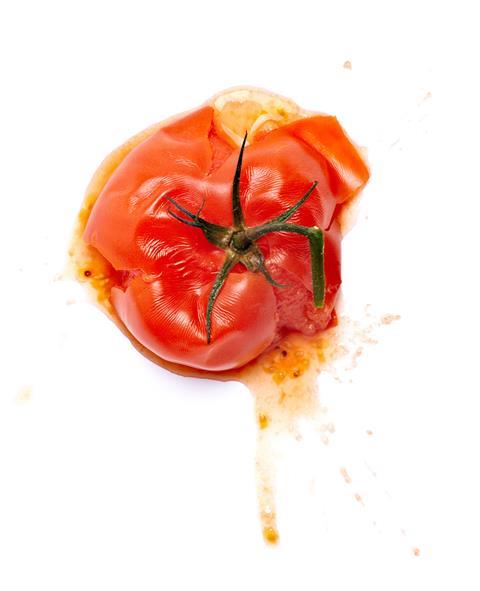Retail, foodservice and business groups urge US administration to negotiate new agreement rather than impose tariff on Mexican imports, which supply around two-thirds of country’s fresh tomatoes

The US could struggle to source enough fresh tomatoes for sale in its grocery stores and restaurants, if the government follows through on its plan to terminate a long-standing trade agreement with producers and exporters in Mexico.
That’s according to a group of more than 30 influential organisations from business, retail, and foodservice, who this week wrote to the US administration urging it to reverse its decision to cancel the so-called Tomato Suspension Agreement (TSA), which for years allowed imports of fresh tomatoes from Mexico into the US, provided they could be inspected – at origin for certain varieties, or on arrival at their destination.
In an open letter to Secretary of Commerce Howard Lutnick, a total of 31 business groups called on the US Department of Justice (DOC) to negotiate a new agreement instead of imposing a 17.09 per cent tariff on most Mexican tomatoes as planned.
“Tomatoes are a vital staple in the American diet. According to the US Department of Agriculture, tomatoes are the second most-consumed vegetable in the United States,” they argued.
About two-thirds of the fresh tomato market in the US consists of imported tomatoes, with the vast majority coming from Mexico.
“While the US produces a significant amount on its own, US growers and distributors must import over 2mn metric tonnes annually – about 90 per cent of which comes from Mexico – to meet domestic demand,” the letter continued.
“Mexico is a key producer of specialty tomatoes like Roma and vine-ripened varieties, which can be difficult to produce domestically in commercial quantities.”
The organisations include: the US Chamber of Commerce; the National Retail Federation, which speaks for companies including Walmart, Target, and Amazon; the Retail Industry Leaders Association; and the National Restaurant Association, which counts McDonald’s, KFC, Burger King, Wendy’s, and Starbucks among its membership.
They added: “Terminating the agreement would likely have widespread repercussions on the US economy, affecting agriculture, warehousing, logistics, grocery, and restaurant industries.
“Nationwide, the import and sale of Mexican tomatoes generate an estimated US$8.3bn in economic benefits, including US$4.69bn in indirect and induced effects. US-owned companies employ nearly 50,000 workers in jobs directly and indirectly supporting the movement of tomatoes from Mexico into communities across the country.”
‘Enormous victory’
Tomato growers in the US state of Florida said they welcomed the move, however. “Today’s decision is an enormous victory for American tomato farmers and American agriculture,” said Robert Guenther, executive vice-president of the Florida Tomato Exchange.
“We’re grateful for the decisive, bold, and crucial action taken by the Trump administration to terminate the US-Mexico Tomato Suspension Agreement. This decision will protect hardworking American tomato growers from unfair Mexican trading practices and send a strong signal that the Trump Administration is committed to ensuring fair markets for American agriculture.”
According to Guenther, five previous agreements with Mexico had “failed”. As a result, he argued, strong enforcement of US trade laws was needed to protect the stability of the country’s food supply chain. “By standing up for American agriculture, the Trump administration has defended the rule of law and prioritised fairness in trade. This action ensures that American consumers will have more choices and higher-quality products, while strengthening America’s food system against future disruptions.
“We commend Commerce Secretary Howard Lutnick for his clear-eyed assessment and courageous action in finally terminating this flawed and ineffective agreement.”
‘Crushed for too long’
The Suspension Agreement on Fresh Tomatoes from Mexico, also referred to as the Tomato Suspension Agreement (TSA), is a trade agreement last updated in 2019 between the DOC and various Mexican signatories, mainly producers and exporters.
It applied to all fresh and chilled tomatoes brought into the US from Mexico except those used for processing, and stipulated that any Mexican fresh tomatoes sold in the US must be sold at or above its stated reference price.
The TSA also provided for mandatory border inspections of all round, Roma and grape tomatoes in bulk, and voluntary inspection of any types at destination.
With that agreement terminated, the DOC said it would issue the antidumping duty order. This, it said, would be calculated to measure the percentage by which Mexican tomatoes have been sold in the US at what it deemed to be “unfair prices”.
“Mexico remains one of our greatest allies, but for far too long our farmers have been crushed by unfair trade practices that undercut pricing on produce like tomatoes,” said Secretary of Commerce Howard Lutnick. “That ends today. This rule change is in line with President Trump’s trade policies and approach with Mexi











